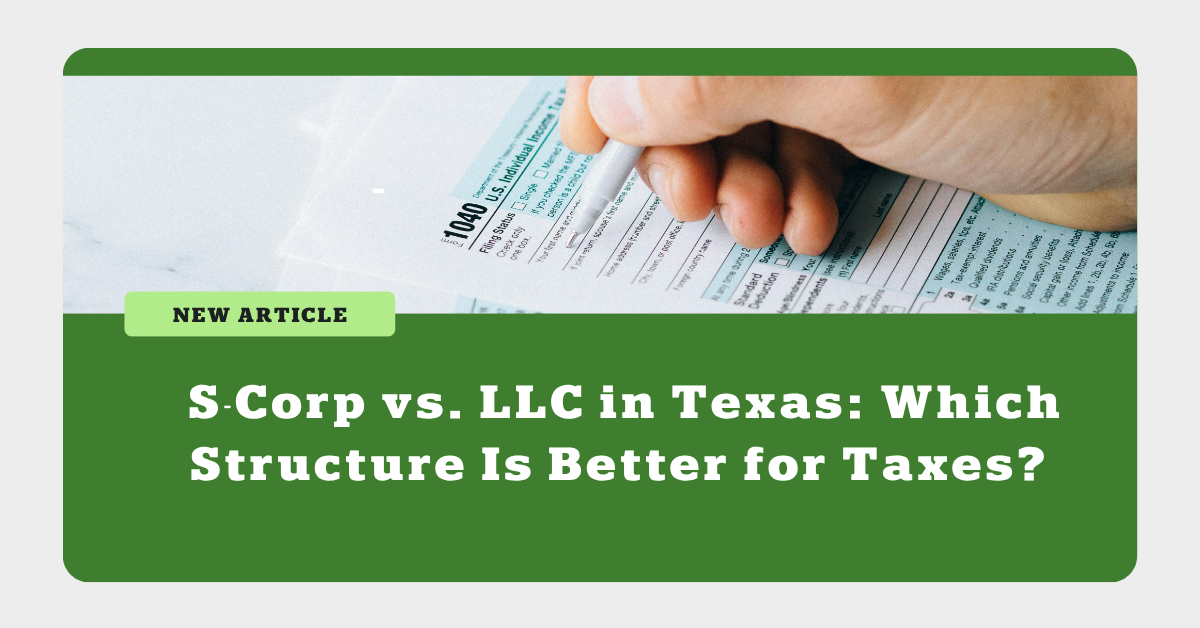
If you are starting a small business in Texas or thinking about changing your structure, two of the most common options are LLC and S-Corp. Both are pass-through entities, but they have key differences when it comes to taxes.
Let’s look at it simply.
An LLC is flexible and simple to run. The profit flows directly to you, and you report it on your personal tax return. The drawback is that all profit is subject to self-employment tax.
An S-Corp is not a separate type of business entity but a tax election. With an S-Corp, you must pay yourself a salary through payroll, but only that salary is subject to payroll taxes. Profit left over can be taken as distributions, which are not subject to self-employment tax.
If your LLC makes $120,000 in profit, all of it is subject to self-employment tax. If you elect S-Corp status and pay yourself a reasonable salary of $60,000, only that portion is subject to payroll tax. The other $60,000 comes out as distributions, which avoids the extra tax.
Since Texas has no state income tax, the difference between LLC and S-Corp is all about federal rules. This makes the potential savings from an S-Corp even more appealing for profitable businesses.
If your business is just starting out or your profit is modest, an LLC often makes more sense. It is cheaper and simpler. If your profit is higher and you want to reduce self-employment taxes, an S-Corp may give you a clear advantage.